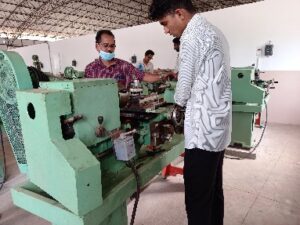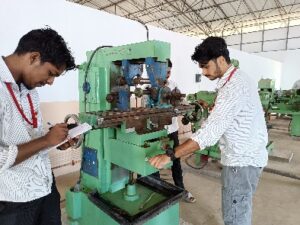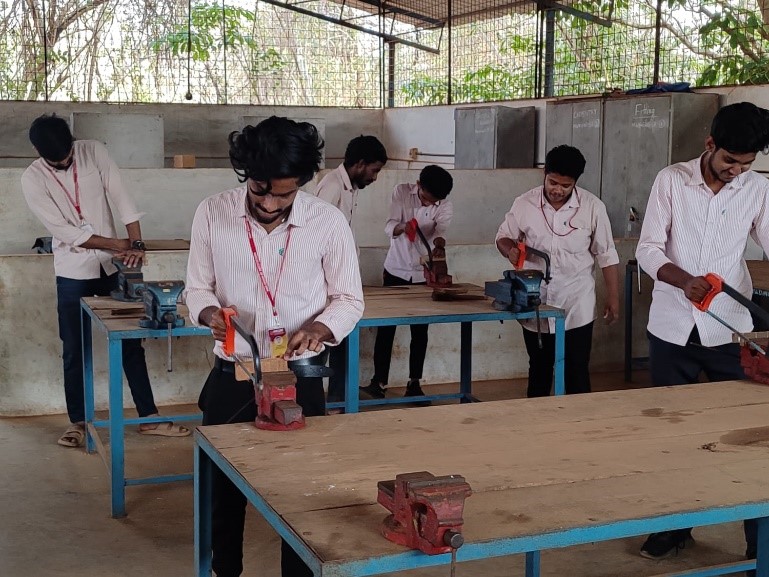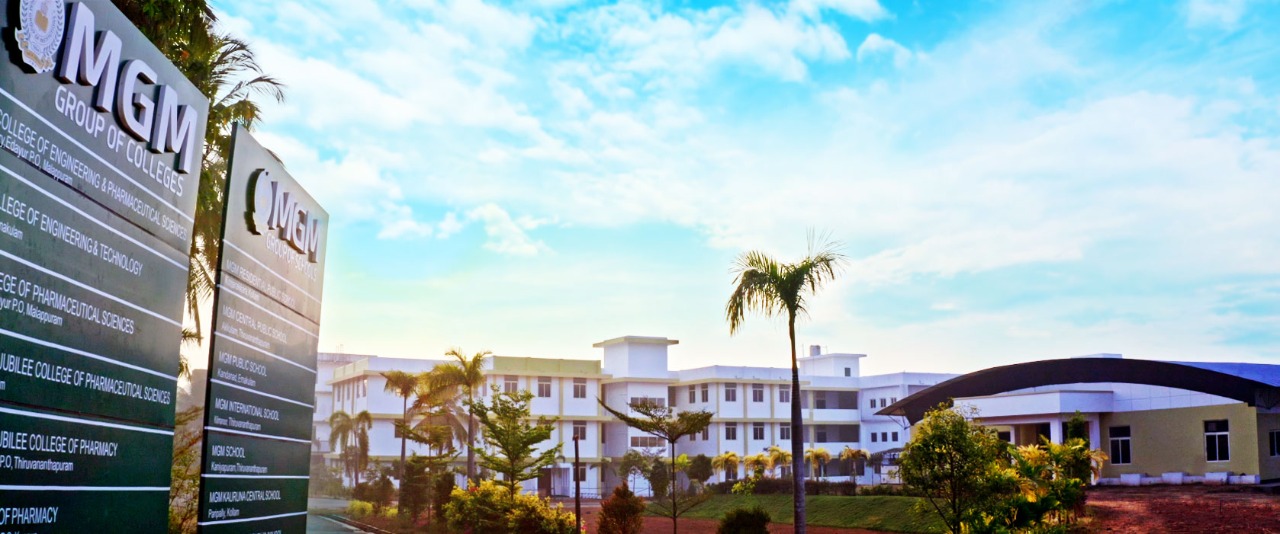OVERVIEW
The Department of Mechanical Engineering (ME) was started from the beginning of the institution in 2012 with an intake of 60. The B-Tech in ME degree program follows the scheme and curriculum of ” Kerala Technical University” to which the College is affiliated. This course is 8 semesters according to AICTE standards.
The Department is supported by highly qualified, efficient and committed teachers. They are periodically delegated to attend conferences and various faculty development programs to keep abreast of the latest developments in the field of the Mechanical Engineering department. Faculty in the department use facilities such as Moodle and other combined teaching and learning aids to improve the quality of teaching and learning. Faculty members and students are also active participants in NPTEL’s online courses with many accolades. Our emphasis is on putting theoretical knowledge to practical use which leads to the development of highly efficient engineers. We have the ME student association known as “AMECH”. The department is constantly striving to improve students’ knowledge, skills and attitude and many value-added programs such as lectures, workshops, technical questionnaires, project exhibitions, design competitions, job presentations, personality development courses, etc. to facilitate this.
Our graduates are in high demand by industry and often promoted quickly to senior positions around the world. A degree in Mechanical Engineering is ideal preparation for starting a career in the Automotive, Aerospace, Automation, Thermal, Process, Medical and Marine industries, or other areas such as accountancy. Many of our graduates go on to careers that make an important contribution to society in terms of wealth generation, safety and environmental sustainability.
PROGRAMME OUTCOME
PO1. Engineering knowledge: Apply the knowledge of mathematics, science, engineering fundamentals, and an engineering specialization to the solution of complex engineering problems.
PO2. Problem analysis: Identify, formulate, review research literature, and analyze complex engineering problems reaching substantiated conclusions using first principles of mathematics, natural sciences, and engineering sciences.
PO3. Design/development of solutions: Design solutions for complex engineering problems and design system components or processes that meet the specified needs with appropriate consideration for the public health and safety, and the cultural, societal, and environmental considerations.
PO4. Conduct investigations of complex problems: Use research-based knowledge and research methods including design of experiments, analysis and interpretation of data, and synthesis of the information to provide valid conclusions.
PO5. Modern tool usage: Create, select, and apply appropriate techniques, resources, and modern engineering and IT tools including prediction and modeling to complex engineering activities with an understanding of the limitations.
PO6. The engineer and society: Apply reasoning informed by the contextual knowledge to assess societal, health, safety, legal and cultural issues and the consequent responsibilities relevant to the professional engineering practice.
PO7. Environment and sustainability: Understand the impact of the professional engineering solutions in societal and environmental contexts, and demonstrate the knowledge of, and need for sustainable development.
PO8. Ethics: Apply ethical principles and commit to professional ethics and responsibilities and norms of the engineering practice.
PO9. Individual and team work: Function effectively as an individual, and as a member or leader in diverse teams, and in multidisciplinary settings.
PO10. Communication: Communicate effectively on complex engineering activities with the engineering community and with society at large, such as, being able to comprehend and write effective reports and design documentation, make effective presentations, and give and receive clear instructions.
PO11. Project management and finance: Demonstrate knowledge and understanding of the engineering and management principles and apply these to one’s own work, as a member and leader in a team, to manage projects and in multidisciplinary environments.
PO12. Life-long learning: Recognize the need for, and have the preparation and ability to engage in independent and life-long learning in the broadest context of technological change.
PROGRAM EDUCATIONAL OBJECTIVES
Provide firm grounding in professional skills and ability to use modern scientific tools necessary for Mechanical Engineering profession.
Inculcate leadership qualities and ethics necessary for practicing as a successful Mechanical Engineer.
Ability to model, analyze, design and realize physical systems, components and processes related to Mechanical Engineering.
Merge into modern work environment as successful professionals. Build the spirit of co-operation to function in multi-disciplinary teams.
MISSION
- Mold Mechanical Engineering graduates responsive to the industrial needs and social commitment.
- Develop the Department as a center of excellence in Technical Education and Research and in allied areas.
- Inculcate leadership and decision-making skills with focus on professional ethics and quality to encourage the students for finding solutions to real engineering world problems.
- Practice innovative methods of teaching fundamental and conceptual knowledge with an aim to impart lifelong learning and to develop creativity.
VISION
To mould competent Mechanical Engineering graduates with innovative thinking, strong ethical / social values and ability to contribute effectively to the development of the society at large.
Head of the Department
Prof (Dr.) Babu John
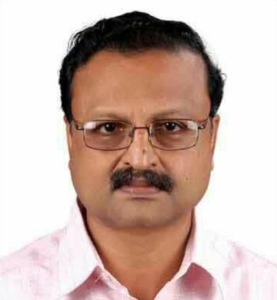
Dr. Babu John had worked as joint general manager in HMT Machine Tools Limited, Kalamassery and he started his teaching career as professor in Toc H Institute of technology and he also served as HOD, Vice Principal and Dean of Academics in the same institute. He joined as Dean of academic in MGM College of Engineering and Pharmaceutical Sciences in May 2020.
He graduated from MA college of Engineering in Mechanical Engineering, Post-graduation from CUSAT in Mechanical Engineering (Production) and PhD from CIT Coimbatore under Anna University Chennai.
Email: [email protected]
Mob: 9388747296
DEPARTMENT FACILITIES
Basic Mechanical Workshop
Major Equipment / Facilities:
- Smithy
- Foundry
- Carpentry
- Welding
- Fitting
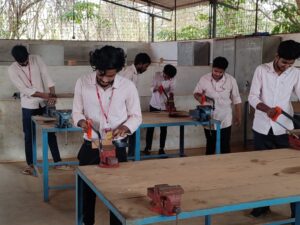
Fluid Mechanics Lab and Hydraulic Machines Lab
Major Equipment / Facilities:
- Bernoulli’s Theorem Apparatus
- Venturi meter
- Orifice meter
- Orifice and Mouth Piece Apparatus
- Notch Apparatus (Rectangular and Triangular)
- Minor Loss Apparatus
- Pelton Turbine
- Reciprocating Pump
- Centrifugal Pump
- Self-Priming Pump
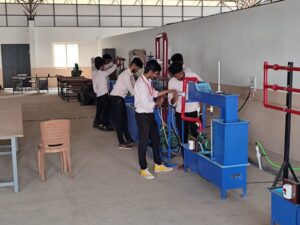
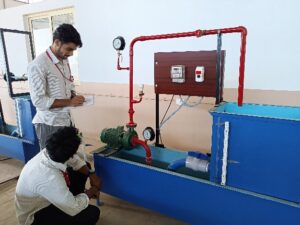
Computer AIDED DESIGN Lab
Major Equipment / Facilities:
- CAD/CAM Software
- Programming Facility
- Analysis Software
- Networking Facility
Manufacturing Technology Lab
Major Equipment / Facilities:
- Self-centring lathe with 3 jaw chuck (16 nos.)
- Self-centring lathe with 4 jaw chuck (2 nos.)
- Grinding Machine
- Drilling Machine
- Shaping Machine (9 Nos.)
- Slotting Machine (9 Nos.)
